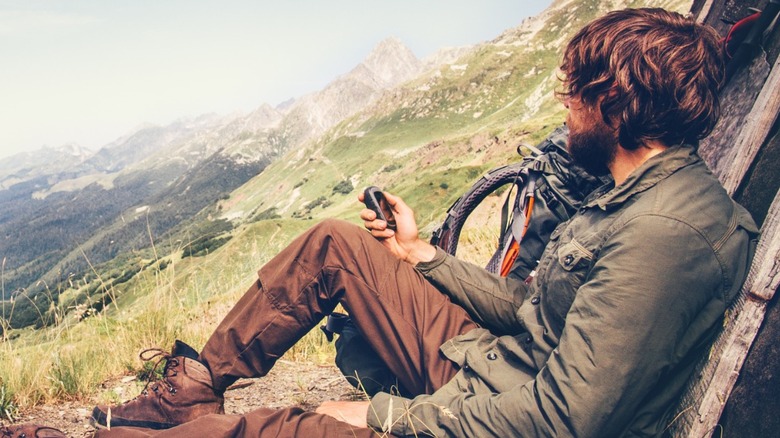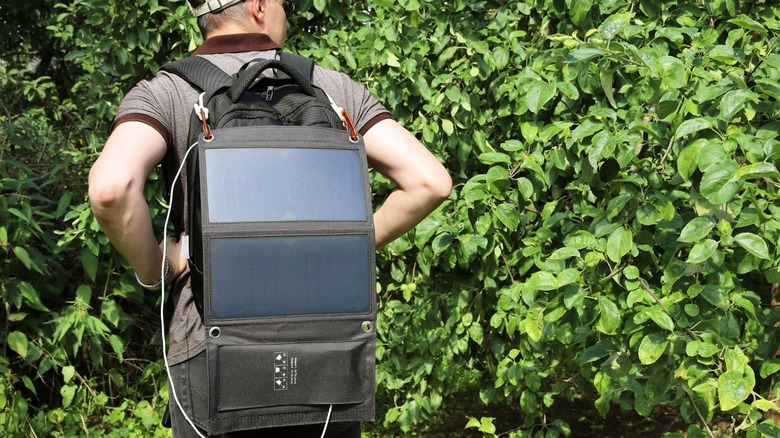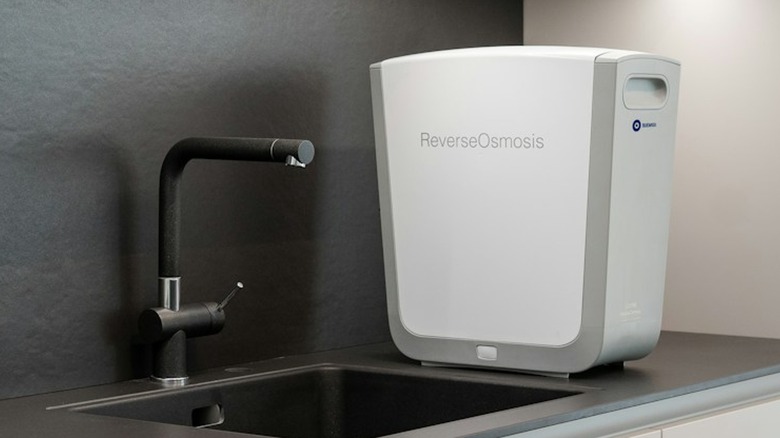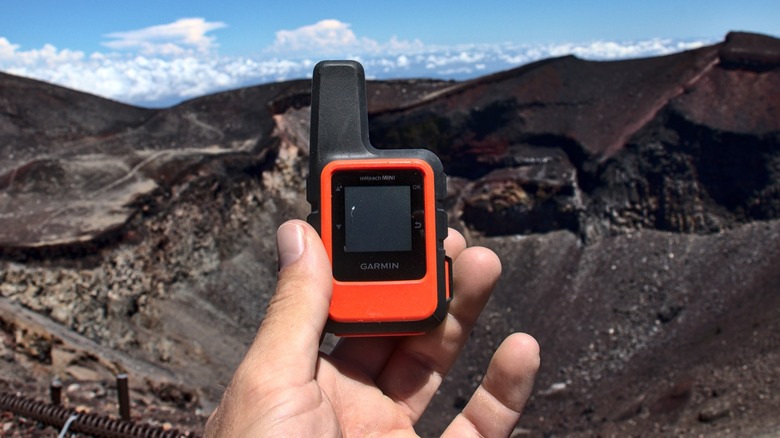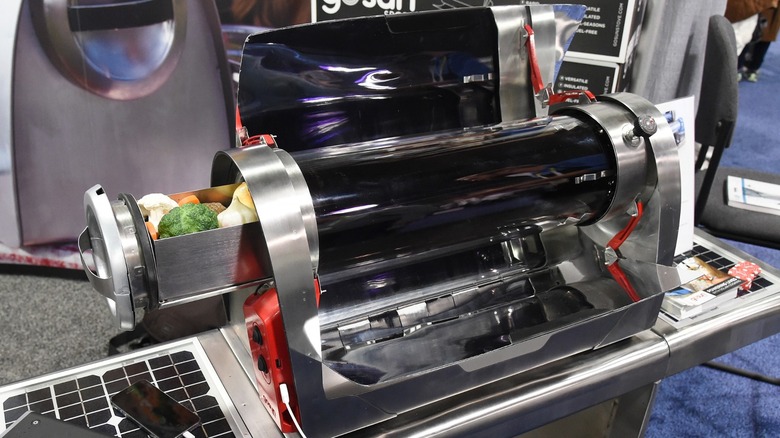Off-Grid Tech Essentials: Must-Have Gadgets For A Comfortable Lifestyle
We may receive a commission on purchases made from links.
We don't forget our entertainment gadgets like our phones, laptops, or e-readers once we plan to go off-grid. However, essentials that make living off-the-grid truly comfortable — like water filters, power backups, and satellite messengers — can be easy to overlook.
The underlying idea of off-grid living is independence from the main power grid, self-sustaining food sources, and a close connection to Mother Nature. Although it was originally a survival necessity, many solitude lovers turned this into more of a lifestyle than a necessity.
Excited off-grid novices, however, may forget or leave out important survival items like solar-powered chargers, water filtration systems, satellite messengers, and solar ovens. Having devices like these in your off-grid setup brings two major benefits: Firstly, you're never at the mercy of an external power or water source when your primary sources were unavailable. Secondly, you can keep enjoying the freedom of location, power, and food that off-grid living offers, uninterrupted.
Solar-powered chargers
Whether you're a trekker or stay near your cabin most of the time, there's always a chance that you will need an additional power source to charge your essential devices. Here, a portable solar-powered charger would help you charge your devices to make it back home safely.
Solar-powered chargers generally come in two forms: brick and foldable plates. Of both, users typically have a better experience with the foldable panel form, praised for their efficiency, usability, and portability. One such good option is the BigBlue 28W Solar Charger, with a relatively cheaper price tag and high portability (weighing only 671 grams). Though you can hang it from your backpack while trekking, it cannot stand on its own like other portable panels on the market.
When you're searching for a solar-powered charger, consider factors like weight, charging capacity, durability, and most importantly, reliability. Some chargers simply stop working on cloudy days. You can only learn the truth about the reliability of a solar-powered charger by checking buyer reviews and impressions.
There are a lot of options when it comes to power banks — both conventional and solar-powered ones. The key is to have one at your disposal at all times. Going with the solar-powered charger or power bank, however, has the added benefit of automatically recharging itself alongside any hiking or camping you do.
Powered water filters
The second thing that could turn your comfy off-grid life into a nightmare is the unavailability of clean drinking water. Sure, portable water filters like LifeStraw are handy for any off-grid situation due to their portability and ease of use. However, even they are unreliable for consistent water consumption, as they often fail to filter viruses out of the water.
For a consistent and healthy water supply, a water filtration system like the SimPure Y7P-BW or Bluevua RO100ROPOT can help for long-term water filtration. Unlike most portable water filters, they're highly effective at filtering contaminants and viruses out of the water, making it safe to drink. They have a painless installation process, require no technical plumbing, and are easy to operate, too.
SimPure and Bluevua take up considerable counter space, which is already scarce in compact off-grid setups. These systems also seem pricey compared to a LifeStraw. That said, the trade-off is access to more consistently clean and safe drinking water. These filtration systems save you from drinking contaminated water and consequently suffering diseases — which is better than paying hefty medical bills later, of course.
Satellite messengers
Even if you have all the power backups possible, you could lose your cellular signal at any time. The way around dealing with no service is to use satellite messengers. They let you put out an SOS to the GEOS International Emergency Response Coordination Center (IERCC), and have rescuers reach out to you. They also serve as a reliable backup phone for communication, adding to your peace of mind and comfort.
Spot X and Garmin inReach Mini are two great options with slightly different form factors. Both are rugged, two-way messaging satellite phones that let you text your contacts and make distress calls to emergency responders using satellite constellations.
The Spot X weighs 7 ounces, has a QWERTY keyboard, a 2.7-inch display, and a 240-hour battery. On the other hand, Garmin inReach Mini has scroll buttons instead of a keyboard. To type a message, you have to scroll through a list of alphabets on the screen and spell out your message. Messaging on the Garmin is less efficient compared to Spot X, but it weighs only 3.5 ounces, and its battery lasts up to 24 days without a recharge.
The best thing about satellite messengers is that they complement your freedom to design your adventures and move places. You don't have to depend on the availability of cellular signals anymore. Note that you'd have to purchase service plans to use these messengers. Thoroughly compare the plans Spot X and Garmin inReach offer before buying either one of them.
Solar ovens
Except for solar ovens, most ovens require some form of fuel to generate the heat necessary for cooking. Although all of them have their benefits, the unavailability of fuel (wood, gas, or electricity) leaves you with no other option than to find the fuel.
Solar ovens are a reliable alternative if your off-grid cabin or station gets enough sunlight occasionally. Like most camping equipment, solar ovens come in many shapes and sizes. Some are harder to carry and store, while others are less efficient. All solar oven types are eco-friendly, as they use direct sunlight to cook your meal instead of burning fuel.
The form factor that the MrMapMax and GoSun Fusion solar ovens offer strikes the right balance between efficiency and ease of use. You slide your uncooked food into its borosilicate glass drum, and its parabolic reflectors redirect the sunlight to the drum, heating and cooking your food. Once the food is ready, you can wrap the oven into a compact bag using its reflectors and store it away.
Of the two, the MrMapMax solar oven has better user reviews on Amazon. It's more affordable, and features a larger drum (4.5L), so you can cook more at once, eat some, and store the rest for rainy days. Still, research and go with the form factor that suits your off-grid use case the best.
